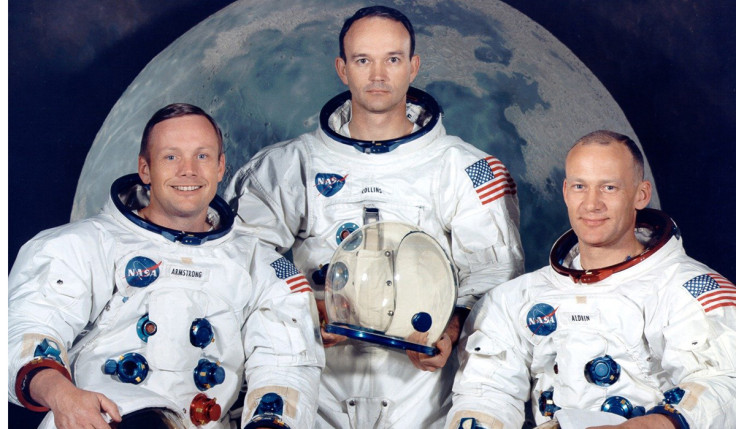Apollo 11: Graffiti found inside command module 47 years after the historic moon mission

Archivists at the Smithsonian National Air and Space Museum have uncovered hand-written notes and markings by Apollo 11 astronauts in various areas of the spacecraft 's command module 47 years after first successful mission to land astronauts on the moon. The markings give a glimpse of the mission crewed by Neil Armstrong, Buzz Aldrin and Michael Collins and include numbers, calculations as well as calendar records.
"We have again been reminded that a curator's work is never done. The markings were found in areas of the spacecraft that have been hidden from view for more than 40 years. It's thrilling to know that we can still learn new things about Columbia. This isn't just a piece of machinery, it's a living artifact," said Allan Needell curator of space history at the museum.
Nedell said the museum is working with the Smithsonian Digitization Program Office and Autodesk to recover very high-resolution laser scanning data and photometry of the exterior and interior of the Command Module. They then plan to stitch together data from several different sources to produce a detailed 3D model.
On 20 July 1969, Neil Armstrong and Buzz Aldrin created history as they stepped out of the Eagle lunar lander and became the first men to walk on the moon. Meanwhile Michael Collins was in the Columbia space module in the orbit around the moon waiting for their return.
#Apollo11 markings unseen for nearly 50 yrs. Discover what we know & hope to learn: https://t.co/eYMsgHG1c9 pic.twitter.com/XcXwywTDCp
— SmithsonianAirSpace (@airandspace) February 11, 2016
The writings in both pen and pencil show the different calculations and notes that the three astronauts worked on while on the mission. A handwritten calendar in particular shows that although the Apollo 11 mission lasted a little over a week, each day from July 16-23 was marked out. The last day of the mission, July 24, when Columbia returned to Earth, is not crossed off.
"The calendar is fascinating to me," said curator Allan Needell. "In space, you don't have sunrises or sunsets, you can't keep track of the day. You know that your family downstairs is going through the normal routine. And to sort of keep some association with normal life on Earth is something I know I would want to do. So it gives you the opportunity to sort of empathize."
© Copyright IBTimes 2025. All rights reserved.





















